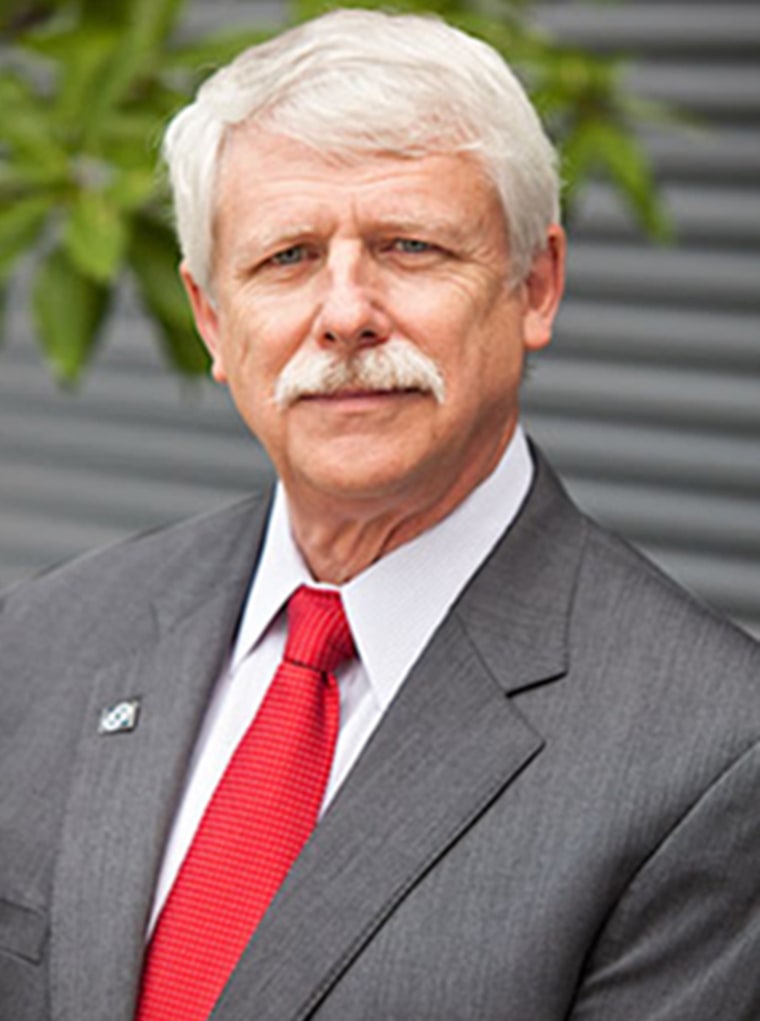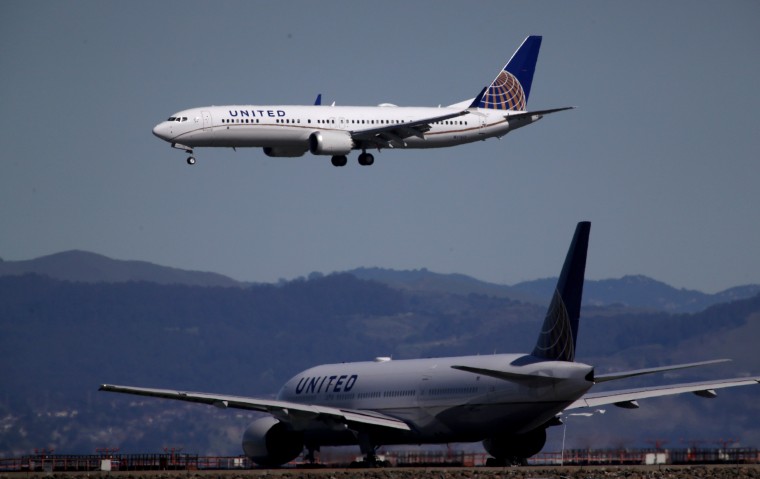After Sunday’s Ethiopian Airlines crash that killed 157 people, the FAA faced sharp criticism for waiting until Wednesday to ground the Boeing 737 Max 8 and Max 9 for U.S. carriers, days after other nations had already taken action.
NBC News spoke to Captain John M. Cox, a former US Airways captain and an NBC News contributor, about the FAA’s decision and the challenges of grounding a plane before there is sufficient data. Cox is chief executive of Safety Operating Systems, an aviation consulting company in Washington. The following interview has been edited and condensed for clarity.
NBC News: Why did the FAA take so long to announce that it was grounding Boeing 737 Max 8 and Max 9?
Cox: I think the FAA very appropriately was looking for data to justify grounding the airplane. Other countries moved very early and didn't have data. The FAA, by legislation, can’t just arbitrarily and unilaterally ground an airplane. They have to show an unsafe condition exists. Without the data, they were in a position where no one could do that.
Yesterday, the information transmitted from the airplane was sent to several countries and that data began to show some evidence of close similarities between the Ethiopian Airlines and the Lion Air accidents. And the investigators on the ground in Ethiopia found some similarities between it and Lion Air. When you put all of that together, then the FAA had sufficient data to say, “OK, we don’t understand everything that’s happened here but we need to go ahead and take action.” That’s what they did.

Would you characterize the FAA as generally conservative in its approach?
The FAA is a complex federal regulatory agency, so there are very complex rules that they have to go by. So they are conservative, they tend to move in very deliberate steps. They carefully build the data that they use to make the decisions so that the people who they report to can understand it as well.
Many people think of the FAA as the global leader other countries follow. Did anything change after the events this week?
I’ve been in the industry for 49 years. Unquestionably, the FAA is a global leader in aviation safety and aviation regulation — no doubt about it. In this case, the Chinese, the Singaporeans, and several other countries and regulators moved to ground the airplanes before there was data. There was a potential of linkage and commonality between the two accidents, but there was no data. And they elected to ground the airplane and lock their airspace out, and that's within their prerogative, but they did not meet the data-driven approach that FAA and some others took.
Boeing spent over $30 million on lobbying in the past two years, and there has been some discussion about its “open line of communication” with Trump and past presidents. Is the FAA too close to the U.S. aircraft industry?
No, and I think that history showed that. Boeing is like any other large company, they have a political wing that lobbies to promote their interest. This is no different than General Motors or Pfizer or any other Fortune 500 company — they all lobby our lawmakers. So, I don’t see anything that’s atypical about their lobbying efforts.
The fact that Boeing is one of, if not the largest exporter of American products in dollars makes them a significant part of our gross national product. Consequently, what negatively affects them has a negative effect on the country overall. And so, as far as Boeing having an overly close relationship with the FAA, when you look at history and you look at how safe aviation has gotten over the years — it's the safest form of public transportation ever created by mankind — it says clearly that the system is working, because we continue to evolve and get safer over time.
What do you think of the FAA’s safety and approval process? Is it sufficient? Does it need changing?
I think overall the FAA does a really good job. I think there are opportunities for improvement. Sometimes they get mired down in the bureaucracies in Washington and they lose sight of what's really going on out in the real world. But, on balance, I think they are a good regulator.
Were there obvious warning signs about the 737 Max that people missed?
I don’t think so. The Lion Air accident in October showed that they had a very unexpected and unintended situation that arose, one that they did not believe was likely to occur. We don’t know what happened yet with Ethiopian Airlines. It’s premature to say what happened there.
After the Lion Air crash, once Boeing and the FAA recognized the problem, it was broadcast worldwide. By the end of October, the FAA appropriately issued an Emergency Airworthiness Directive. They believed that the necessary information was in the hands of pilots.
One thing that has been difficult about this situation is that there’s a great deal of public fear and concern before all the facts are known. People were calling airlines to make sure they weren’t flying a 737 Max, politicians were demanding the planes be grounded. How does the FAA balance public fear and their own lack of data?
I think some of the countries that grounded the airplane early acted prematurely. The FAA said that other countries were certainly entitled to do ground the planes, but they didn’t feel like they had sufficient data. That was an appropriate decision at the time.
Let me give you an analogy: if you were driving down the street, and you witnessed a major automobile accident, and one of the cars involved was the exact same car that you were driving, would you park your car?
In the early stages, we did not know that there was commonality between the Ethiopian Airlines accident and the Lion Air accident. All we knew was two 737 Max planes in five months were in the ground and some regulatory agencies were closing airspace. It's hard to justify making policy decisions with that little data.
Now, the 737 Max is grounded, the investigations are ongoing, and it seems public concern has been assuaged. Is there a lesson here?
I’m not sure there is because we became driven by political concerns and emotional concerns, even when we didn’t have the data. If you look at aviation’s evolution, from 1903 to today, the big safety improvements have all been data driven. We grounded an airplane before we had the data.
Going forward, I think everyone will look carefully at this whole process because it has been so tumultuous.

